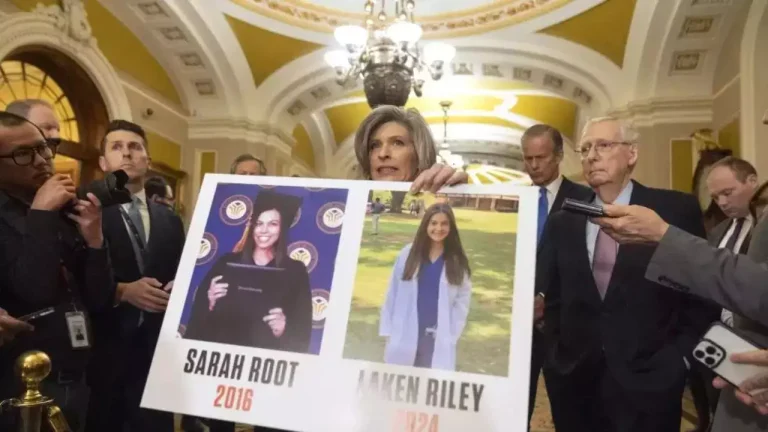In a groundbreaking decision, U.S. District Judge Phillip Calabrese has held members of an Ohio sheriff’s office and board of commissioners accountable for violating free speech rights. The ruling stems from an incident in July 2022 when Trumbull County Commissioner Niki Frenchko, the lone Republican member, was arrested during a meeting she was conducting. Cincinnati civil rights attorney Matt Novak argued that the arrest constituted a violation of free speech, asserting that political opponents should not be arrested in the United States.
The incident, which Commissioner Frenchko livestreamed on Facebook, involved her arrest by two Trumbull County sheriff’s deputies. The arrest took place after Commissioner Mauro Cantalamessa, identified as the individual attempting to end Frenchko’s speech, moved to expedite the meeting rather than allowing her to continue her critical remarks about the sheriff.
Frenchko expressed her disbelief at the situation, stating, “I didn’t think it was real. If you saw the video, I did a double take.” The arrest occurred under the guise of maintaining order during the meeting, where Commissioner Cantalamessa can be heard expressing his disapproval of Frenchko’s criticism of the sheriff, emphasizing, “You’re talking about the chief law enforcement officer of Trumbull County. It’s unacceptable.”
Attorney Matt Novak, undeterred by the four-hour drive to the Cleveland area, championed the case, arguing that an Ohio law designating disruption of a public meeting as a misdemeanor did not empower public officials to criminalize criticism of their peers. The court’s decision underscores that such attempts to stifle dissent through legal means are unacceptable.

Read more:
- Breaking News: Florida Student Arrested for Bringing Loaded Gun to School Sparks Widespread Safety Concerns
- Bipartisan Push Aims to Provide Proxy Voting Support for New Moms in Congress
- Untouched Wealth: $2 Million in Coins Still in Existence
- Jail-Term Appeal for Animal Activist in California Supported by Denver Law School Unit
“The sheriff should have known better, his deputies should have known better, and her fellow commissioners should have known better,” remarked Novak on the court’s ruling. He emphasized the importance of government officials understanding the boundaries of free speech and not resorting to intimidation tactics.
The court ruled that the arrest of Commissioner Frenchko violated the First Amendment, sending a clear message that attempts to silence speech, regardless of political affiliation, will not be tolerated. Frenchko herself sees the ruling as a broader message to government officials, emphasizing that stifling speech is unacceptable, irrespective of the party being targeted.
“That level of intimidation is intended to send a message to everyone to watch what they say,” Frenchko noted. The case sets a precedent, reinforcing the idea that public officials cannot use their authority to suppress dissent or criticism.
While the judge ruled that members of the sheriff’s office and the commission were liable for the free speech violations, Novak expressed his intent to continue pursuing damages in the case. As of now, the court has yet to determine the amount to be awarded. Novak stressed the significance of imposing financial consequences on government actions, stating, “The reality is, if the government didn’t have to pay anything and there were no financial consequences for their actions, what’s to stop them from doing it all over again—constantly, constantly, constantly.”
Despite WCPO’s attempt to seek comments from the sheriff’s office and county commission, no response has been received. The landmark ruling serves as a reminder that protecting free speech is paramount and attempts to silence critics will not go unchallenged in the legal system. The case has broader implications for the boundaries of free speech rights and the responsibilities of public officials to uphold these fundamental democratic principles.















+ There are no comments
Add yours